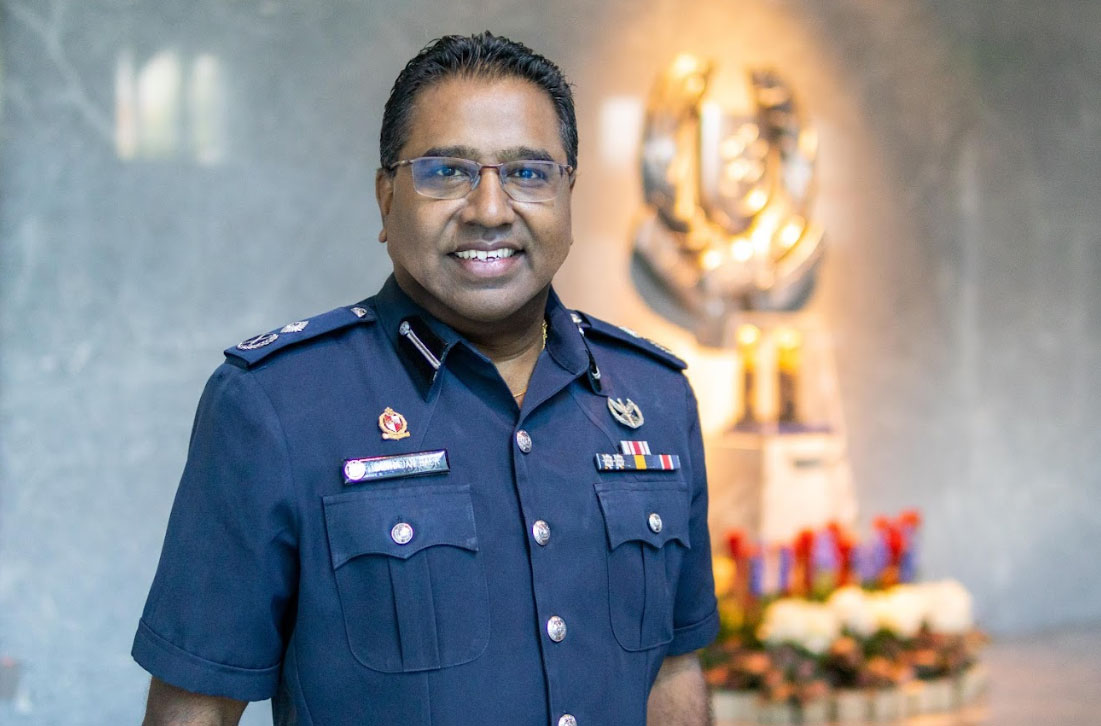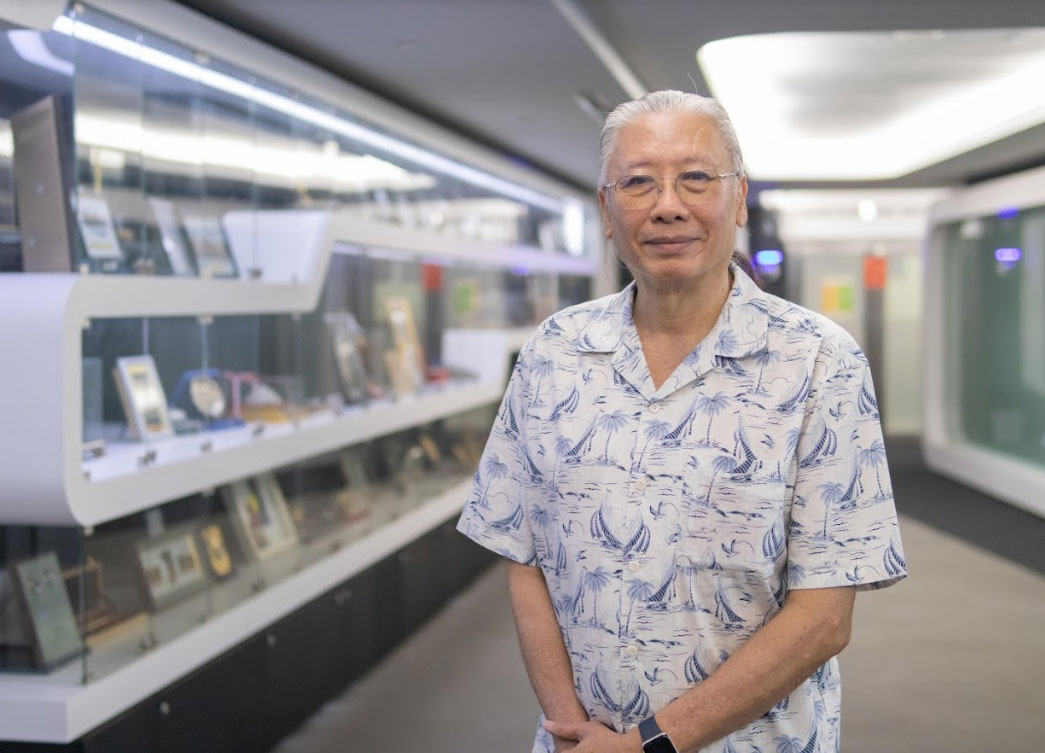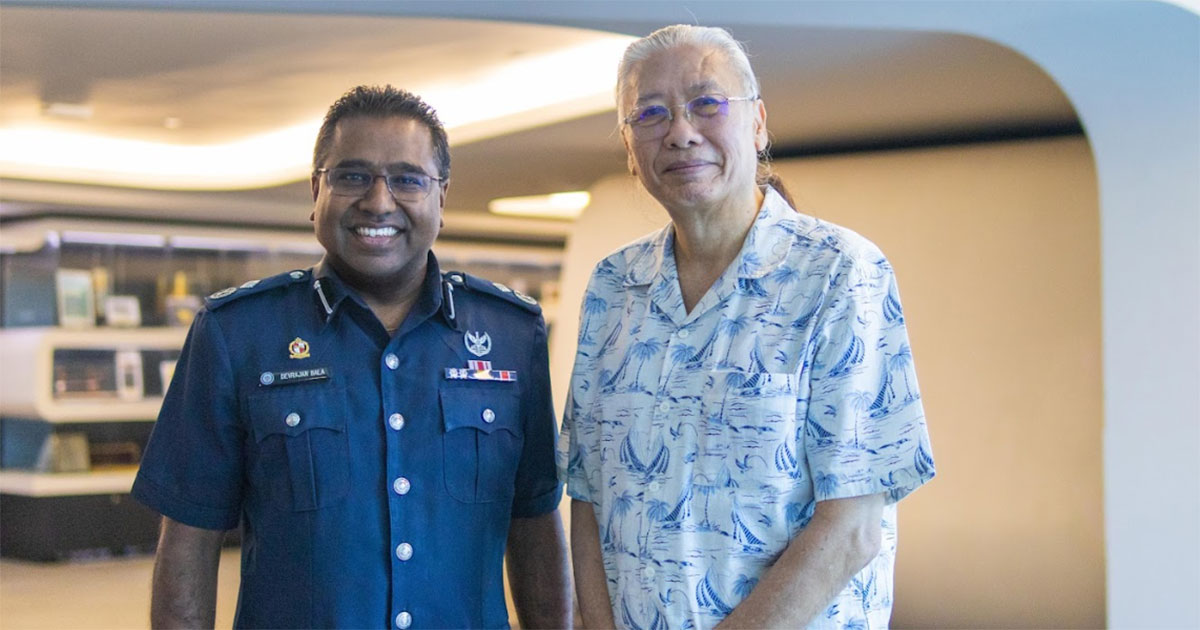Follow us on Telegram for the latest updates: https://t.me/mothershipsg
A team that was formed by the Singapore Police Force in 2002 with fewer than 50 people has grown to more than 100 negotiators and psychologists within its ranks 20 years later.
While the doubling of the team over two whole decades might appear like a slow burner of a growth rate, which is nothing to crow about in this age of rapid expansions, that is probably a good thing.
This is because the Crisis Negotiation Unit (CNU) under the SPF is tasked with responding to hostage incidents, barricaded incidents or stand-off situations, public order incidents and attempted suicides -- which means the rarer these cases, the better.
Using proven verbal crisis management techniques, the negotiator's job is to see to win-win outcomes without the need for the escalation of drastic measures, especially the use of violence.
Negotiations can take hours
The unit’s deputy commanding officer, Assistant Commissioner of Police Devrajan Bala, is a veteran in his field, having seen to numerous incidents from the start when the CNU was formed.
 Assistant Commissioner of Police Devrajan Bala via SPF
Assistant Commissioner of Police Devrajan Bala via SPF
Trained by experienced hostage negotiators from the United Kingdom, he was a member of the pioneer batch of negotiators.
But real-life scenarios have seen his skills pushed to the limits.
In one memorable case that lasted 21 hours in 2003 -- during the first year of the CNU's existence -- Bala had to negotiate with a foreign national who had climbed to the top of a crane in Yio Chu Kang and threatened to jump down.
Perched at a height of about seven storeys high, the situation was made more precarious as the crane overlooked a deep tunnel sewerage system.
Instead of showing up at the scene with guns blazing and batons on standby to put an end to matters in as short a time as possible, it was a slow slog overnight to convince the man to back down.
At one point, Bala had to go home to take a short rest before returning to the site of the crisis.
The man was eventually coaxed to climb down after Bala got through to him -- not without difficulty, but a payoff in itself.
“People cope with difficulties in life in different ways, so we don’t try to downplay what people are going through," Bala explained.
“The feeling of being able to save a life at the end of it is actually very rewarding. That’s why our negotiators keep doing this year after year.”
Not a full-time job on its own
However, for those who assume negotiating is an all-talk job that only requires a glib tongue, powers of persuasion, and a good focus on the positive outcomes, they might have to think again.
CNU officers are police officers and psychologists who volunteer their time and hold secondary appointments as negotiators, over and above their primary duties.
At any point in time, a team is on standby round the clock to deal with any emergency.
The entire CNU is split into four teams to have people on duty year-round.
Crises have changed, more than dealing with terrorists
The evolution of the CNU is a lot clearer by looking at its past.
In the early days, the CNU has its origins in the Negotiation Team (NT) that was set up in 1984.
The original team were involved in incidents such as the Laju Ferry hijack and the Olympics hostage crisis.
Such incidents prompted the SPF to assess the utility of negotiation as a principal strategy in resolving high-risk situations and resulted in the formation of the NT to conduct negotiations in such situations.
The NT was also involved in incidents such as the SQ117 hijack incident in 1991.
In 2001, SPF began a review to upgrade its crisis negotiation capabilities, including revamping its structure and organisation.
NT was renamed the Crisis Negotiation Unit.
At the start of the CNU's formation, volunteer officers and psychologists were introduced to the ranks of the new unit and it was operationalised on May 1, 2002.
“Negotiations," Bala said, "give you the opportunity to lower tensions, to bring some rationality into what’s going on that day.”
CNU responded to 65 incidents in Singapore in 2021
The change in operating realities was made so that professionals can now deal with day-to-day situations, beyond the rare incidents of negotiating with terrorists to free hostages, for example.
And the stats bear that out.
In 2021, the CNU responded to 65 incidents that ranged from suicide attempts to barricaded individuals.
According to Seah Thian Pau, 69, he had joined the CNU with real-life experience, having been a pioneer member of the NT and was involved in the resolution of the hijacking of Singapore Airlines Flight SQ117 in 1991.
 Retired deputy superintendent of police Seah Thian Pau
Retired deputy superintendent of police Seah Thian Pau
He had been part of the unit since its inception, and retired from the force in 2008 with the rank of deputy superintendent of police.
Looking back, he recognised that the role of negotiators are necessary when responding in quick fashion to day-to-day crises, such as suicides, which can make a difference in the eventual outcome.
Seah said: “When we changed to the CNU, it was not terrorist-based but more about crises."
"For example, in a suicide case, we try and talk them out.”
In other cases, the negotiator could aim to wear the perpetrator out for other more decisive force to be used.
This occurred for a case in 2016 involving a 17-hour stand-off.
Officers from the Special Operations Command ended up forcing their way into a Sembawang HDB flat to arrest a man who had locked himself inside with a two-year-old boy.
“The many hours of negotiation allowed us to better understand the situation and wear the man out,” Bala, who was at the scene, said.
It was when the man grew tired that the team could have “a better window of opportunity" if they decided to use force.
All media via SPF
If you like what you read, follow us on Facebook, Instagram, Twitter and Telegram to get the latest updates.
